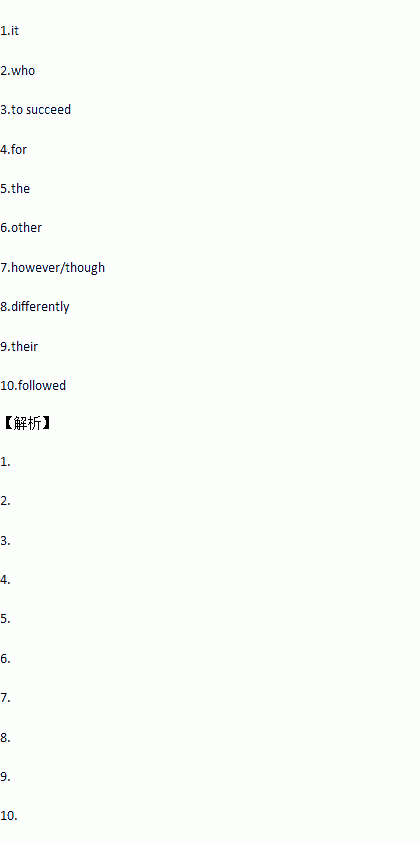题目内容
阅读下面材料,在空白处填入适当的内容(不多于3个单词)或括号内单词的正确形式。
Were you the first or the last child in your family? Or were you a middle or an only child? Some people think 1. matters where you were born in your family. But there are different ideas about what birth order means. Some people say that oldest children, 2. are smart and strong-willed(意志坚强的), are very likely 3. (succeed). The reason 4. this is simple. Parents have a lot of time for their first child and give him or her a lot of attention. An only child will succeed for 5. same reason. What happens to the 6. children in the family? Middle children don’t get so much attention, so they don’t feel that important. If a family has many children, the middle one sometimes gets lost in the crowd. The youngest child, 7., often gets special treatment. Often this child grows up to be funny. But a recent study saw things quite 8. (difference). The study found that first children believed in family rules. They didn’t take many chances in 9. lives. They usually 10. (follow) orders. Rules didn’t mean as much to later children in the family. They took chances and they often did better in life.
 七星图书口算速算天天练系列答案
七星图书口算速算天天练系列答案

 of the best memories. Finally we reached the top of Kilimanjaro in bright blue skies.
of the best memories. Finally we reached the top of Kilimanjaro in bright blue skies.